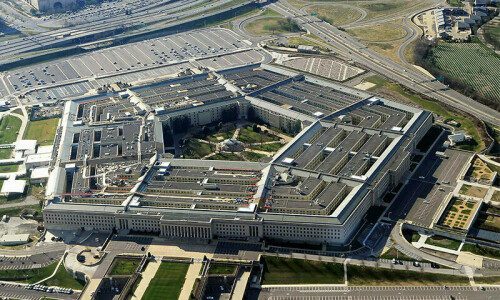AS if the prospect of a global recession isn`t enough, consider the latest threat to world economic stability an alliance between Russia and Opec, the oil-producing cartel dominated by Saudi Arabia.
That`s a scary possibility, as Russia supplies one third of Europe`s energy needs, while Opec accounts for nearly 40 per cent of global oil production. Together they produce half the world`s oil, so any pact that paves the way for Russia to become a full member of the cartel would present a threat to many countries, which are becoming increasingly dependent on their energy imports.
But is such a merger really on the cards? The Russians would clearly like one last week, it sent its energy minister Igor Sechin to attend Opec`s meeting in Vienna and proposed `extensive co-operation` with the cartel. A memorandum of understanding is being prepared for signature in the coming months.
Oil is Russia`s biggest bargaining chip, as the soaraway price has done more than anything else to give it the confidence and clout to re-assert itself on the world stage. A pact with Opec would strengthen Moscow at a time when it has lost friends in the West following its invasion of Georgia and its harassment of foreign companies, such as BP, which have business interests in Russia.
An extension of the oil cartel to include Russia, however, will be hard to pull off. Saudi Arabia, by far the most important Opec member, is a conservative state supposedly aligned with the United States, and may be reluctant to alienate such a powerful ally. But it is not impossible Opec already comprises countries hostile to the US, notably Iran and Venezuela. So why not add Russia?
Hidden from the debate, however, is the fact that Saudi Arabia is a cartel within a cartel. With 21 per cent of all Middle Eastern proven oil reserves, it is the only country with significant surplus capacity. That means it can cushion itself from price falls by bumping up volume in a way that other countries can`t. No doubt that was one reason why Russia has been frantically lobbying behind the scenes for Opec to cut production to keep prices high, as it faces capacity restraints and stands to lose billions in foreign reserves.
Last week, the cartel said it would cut production by around 500,000 barrels, bringing a rebuke from the International Energy Agency, which claimed the move would undermine the price relief that consumers have enjoyed in the last month.
But Opec may have overreached itself by trying keep the price of oil at around $100 a barrel, it has stoked fears that a recession will be deeper than anticipated and will lead to a slump in demand. As a consequence, oil closed on Friday at just under $100 a barrel and could slide further.
— The Guardian, London










































Dear visitor, the comments section is undergoing an overhaul and will return soon.